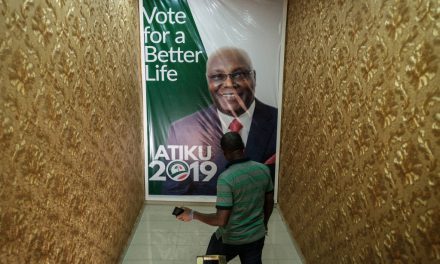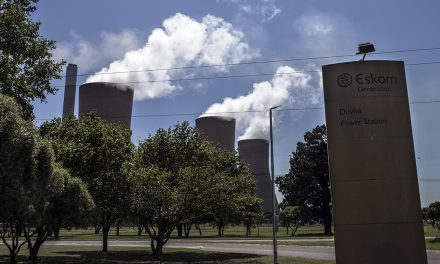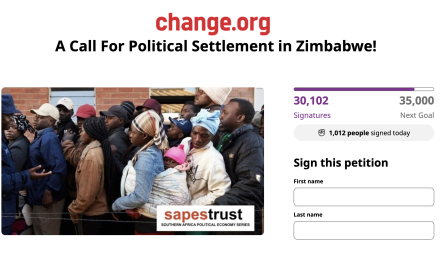One of the most important issues to unpack before the elections is coalition politics. There are three key questions to answer:
- Why do coalitions form?
- Why is South Africa seeing more and more of them?
- How might South Africa reduce the risk that the instability present in many local coalitions could transfer to the national and provincial levels?
Coalitions form for various reasons, but they most commonly result from a scenario where no political party can gain enough representation in a political assembly—like a parliament or a municipal council—to govern effectively in their own right. This situation is known as a “hung council” or a “hung parliament.”
Although the African National Congress has dominated South African national, provincial, and local elections since 1994, coalitions are a form of government implicitly built into our democratic constitutional framework.
‘Proportionality’ is already catered for in our electoral system
To know why, one must understand how the principle of “proportionality,” around which our electoral system is constructed, works. In practical terms, proportionality means that if a political party receives around 5% of the votes cast in an election, it expects to gain roughly 5% of the representation within the relevant political assembly.
This principle is embedded in dozens of electoral systems around the world, and one thing which political scientists have found common in these systems is the presence of “hung” political assemblies where no party has more than 50% of the representation. This is why coalitions form, whereby parties must work together to pass budgets, create laws or approve administrative appointments.
The reasons why coalitions are more common in systems based on proportionality are varied. However, one salient factor, especially in a diverse society like South Africa, is that these systems more accurately reflect diverse voter preferences.
Indeed, considering the then-recent experiences of Apartheid, the tendency of proportional systems to provide representation that gave diverse voices a seat at the table was one reason why it was the preferred political system of many negotiators during our transition to democracy.
Moreover, due to the reduced barriers to representation in these systems, South Africa has witnessed another by-product of proportionality; the rapid emergence of dozens of political parties. Whereas in 1994’s seminal elections, there were under 20 parties contesting nationally for the ballot on May 29, there will be more than 50 options for the national ballot alone. There are even more options in the provincial and regional ballots, especially given the recent entry of independent candidates into our system.
As one might expect, there is a link globally between the number of parties on offer in a country and the likelihood of coalitions.
2021 local elections marked the era of coalitions
In South Africa’s case, the dominance of the ANC meant that fewer coalitions were required than in most other proportional systems. However, the 2021 local elections, where the number of hung councils increased by more than threefold, marked the dawn of the coalition era in South Africa.
It is striking how rapidly this change has come about. To take one revealing statistic, when we calculate – using Census 2022 figures, the proportion of South Africans who lived in a hung metropolitan or local council just before the 2021 local elections, that figure stands at just over 27.5%. After those elections, that figure spiked to over 47% of the country living in a municipal council where no party claimed outright victory.
In South Africa’s economic hub of Gauteng, a remarkable 99.26% of the population lived in a hung municipality after the 2021 elections, with the only exception being Midvaal, which has a Democratic Alliance majority government.
Recent opinion polls before the May 29 elections suggest South Africa might soon live under a coalition government. At a minimum, electoral trends over the last decade indicate that the country’s two most populous provinces, Gauteng and KwaZulu-Natal, home to 27 million of the country’s 62 million people, will be governed by coalition governments.
The nearness of the coalition era has raised concerns that the instability in many metropolitan councils, which lack a majority government, might replicate at the provincial and national levels, where the stakes are even higher.
To some extent, these fears are well-founded because, since 2021, political parties across the board have struggled to work in a manner that has addressed many of South Africa’s most pressing local government challenges.
At the same time, some recent examples highlight how a stable coalition government can best form in a South African setting. Following the 2016 local elections, the three large Gauteng metros of Ekurhuleni, Johannesburg, and Tshwane were all “hung” for the first time in our democratic history.
Ekurhuleni had a sound coalition until 2021
Yet, while the post-2016 period in Johannesburg and Tshwane lacked a coherent coalition management system and thus experienced constant instability and mayoral committee changes, between 2016 and 2021, Ekurhuleni had a formal coalition arrangement.
This, in turn, facilitated a stable situation that enabled Ekurhuleni to address major governance issues while Johannesburg and Tshwane struggled. Three key indicators of the state of a large municipality are the quality of water systems, the quality of wastewater systems, and the state of financial management and reporting.
On each of these indicators, Ekurhuleni improved its performance between 2016 and 2021, according to reports by the Auditor General of South Africa and the Department of Water and Sanitation. By contrast, Johannesburg had a mixed performance, while Tshwane was in a worse place on all three measures post-2021 than just before the 2016 election.
The regression in some governance outcomes in Ekurhuleni since the 2021 local election is likely to be caused, at least partly, by the decision not to pursue a formal coalition agreement of any notable kind after those elections.
A solid civil service is critical to coalition stability
Equally important as making coalition arrangements formal is making them public. At the heart of democracy lies the relationship between citizens and those who govern. Formal coalition arrangements can amplify stability, but having them made public means that citizens can better hold the elected to account between elections as well.
This is why, to ensure stable governance that facilitates South Africa’s development, it is vital that, whatever the outcome of the May 29 polls, civil society and citizens put pressure on political parties to formalise and publicise coalition agreements.
Another crucial aspect of this work is ensuring that South Africa possesses a civil service that is capable of making sure taps run, crime is combated, and infrastructure is built and maintained even in the midst of political instability.
To some extent, such civil service capacity exists at the national level, especially in government departments responsible for South Africa’s economic policy, like the National Treasury, and those responsible for foreign policy, like the Department of International Relations and Cooperation.
The presence of these officials, with their institutional memory and expertise, is one reason why, even if South Africa has a coalition national government, whatever its composition, drastic changes to our economic framework or our foreign policy approach are probably unlikely.
A second reason is that, particularly in a power-sharing setting, even parties that endorse radical approaches will have to change their behaviour, at least somewhat, to account for economic and political realities, both nationally and internationally.
For instance, medium-sized parties like the Economic Freedom Fighters and the Patriotic Alliance, who have positioned themselves as “kingmakers” in local coalitions, may find shifting the levers of power much more challenging than their manifesto drafting process.
This is because whoever governs South Africa after the election will do so in the context of domestic financial and legal constraints and growing international volatility. Rising debt servicing charges will prove a natural impediment to demands for a vastly expanded social safety net; the constitution correctly presents intricate limitations on the ability to combat the problem of illegal migration with undue violence, and great power competition between countries and power blocs like the United States, China, the European Union, Russia and India is here to stay.
The impending coalition era that May 29 portends does not mean that South Africa cannot grapple with these and other challenges in a way that leads us into a more promising national situation.
However, making this era a success will require citizens and their representatives to be more willing to constructively engage with each other long after the ballots are tallied up in this specific election.
Pranish Desai is a doctoral student in political science at the Massachusetts Institute of Technology. His core areas of focus are in comparative politics and political methodology, with a specific interest in the politics of Southern Africa. Between 2021 and 2024, Pranish held several key positions within the Governance Insights and Analytics programme at GGA. In these roles, he was centrally responsible for the elevation and enhancement of the Governance Performance Index as GGA's flagship governance assessment tool. Before departing GGA, Pranish also played a key role in the development of our strategic framework for the 2024-2028 period.












